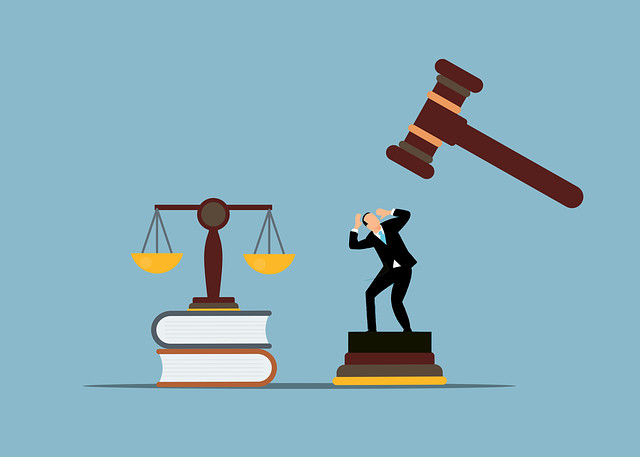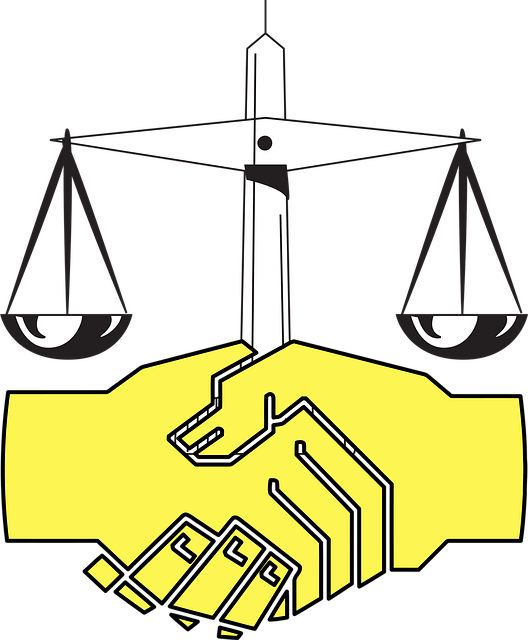In today's digital era, understanding Consumer Protection Laws for Online Purchases is crucial for both consumers and businesses. These laws safeguard buyers from fraud, misrepresented products, and non-delivery, fostering trust in e-commerce. Regulatory bodies monitor transactions, investigate complaints, and conduct audits to ensure fair practices among businesses, deterring white-collar offenses. Businesses can proactively navigate investigations by implementing strong internal controls, clear data privacy policies, meticulous records, and ethical training, ultimately bolstering defenses and showcasing commitment to consumer protection.
In today’s digital era, understanding consumer protection laws for online purchases is paramount for e-commerce businesses’ survival. As consumer expectations soar, so does the complexity of navigating a web of regulations. This article explores why C-Level investigations are essential in tackling common issues like fraud and misrepresentation, highlighting the critical role of regulatory bodies. We’ll delve into best practices to help businesses navigate these investigations, ensuring compliance and fostering trust in an increasingly online world.
- Understanding Online Consumer Rights: An Overview of Protection Laws
- Why C-Level Investigations are Essential for E-Commerce Businesses
- Common Issues and Complaints in Online Purchases: A Focus on Fraud and Misrepresentation
- The Role of Regulatory Bodies in Enforcing Consumer Protection
- Best Practices for Businesses: Navigating Investigations and Ensuring Compliance
Understanding Online Consumer Rights: An Overview of Protection Laws

Understanding online consumer rights is an essential aspect of navigating the digital landscape. In the world of e-commerce, Consumer Protection Laws for Online Purchases play a pivotal role in safeguarding buyers from unfair practices and ensuring transparent transactions. These laws are designed to empower consumers, offering them recourse when facing issues like fraudulent activities, misrepresented products, or non-delivery.
By understanding their rights, online shoppers can take proactive measures to avoid potential pitfalls that may lead to expensive mistakes or even criminal indictment in severe cases. This knowledge equips individuals with the tools to make informed decisions, fostering a more secure and trustworthy environment for all participants in the digital marketplace. Moreover, it highlights the importance of businesses adhering to ethical standards, potentially deterring white-collar offenses and reducing the likelihood of lengthy jury trials.
Why C-Level Investigations are Essential for E-Commerce Businesses

In the dynamic landscape of e-commerce, where transactions occur at a rapid pace across borders, ensuring consumer protection has become paramount. C-Level Investigations play a pivotal role in safeguarding both corporate and individual clients from fraudulent activities, especially in light of stringent Consumer Protection Laws for Online Purchases. These investigations are essential to navigate the complex web of digital trade, where non-compliance can lead to severe consequences, including legal indictment.
By employing specialized teams experienced in all stages of the investigative and enforcement process, businesses can mitigate risks effectively. Their expertise extends from uncovering fraudulent schemes and falsified product claims to tracking down cybercriminals, ensuring a secure environment for online transactions. This proactive approach not only protects consumers but also fosters trust, which is vital for the long-term success and growth of e-commerce ventures in an increasingly digital world.
Common Issues and Complaints in Online Purchases: A Focus on Fraud and Misrepresentation

Online purchases have become a ubiquitous part of modern life, but they also present unique challenges for consumers. Common issues range from fraudulent transactions to misrepresentation of products, leading many to seek recourse under Consumer Protection Laws for Online Purchases. These laws are designed to safeguard buyers, ensuring they receive what they’ve ordered and pay a fair price. However, navigating these legal protections can be complex.
Fraudulent activities, such as fake websites and impersonation, target unsuspecting consumers, while misrepresentation involves misleading product descriptions or hidden fees. As e-commerce continues to grow, so does the need for robust consumer protection. This is particularly important for fostering trust in online transactions, benefiting not just individual shoppers but also the respective business, philanthropic, and political communities by promoting ethical practices and a general criminal defense mechanism against deceptive behaviors.
The Role of Regulatory Bodies in Enforcing Consumer Protection

Regulatory bodies play a pivotal role in safeguarding consumers, especially with the rise of online purchasing. These entities are tasked with enforcing Consumer Protection Laws for Online Purchases, ensuring fair practices and resolving disputes between buyers and sellers. They act as watchdogs, monitoring transactions and holding businesses accountable for any misconduct or violations. This oversight is crucial in mitigating white-collar and economic crimes, fostering trust among consumers, and promoting ethical business conduct.
By investigating complaints and conducting regular audits, these regulatory bodies help maintain a level playing field. They offer guidance and resources to businesses, teaching them about their responsibilities under consumer protection laws. Moreover, they collaborate with law enforcement agencies and work closely with the philanthropic and political communities to stay ahead of emerging trends in online fraud, ensuring comprehensive protection for all participants in the digital marketplace.
Best Practices for Businesses: Navigating Investigations and Ensuring Compliance

In today’s digital era, businesses must be prepared to navigate complex investigations, especially those related to consumer protection laws for online purchases. The best practice lies in establishing robust internal controls and procedures that ensure compliance with all relevant regulations. This includes implementing clear data privacy policies, maintaining meticulous records of transactions, and fostering an ethical culture among employees at all levels. Regular training sessions on these matters can help the respective business stay ahead of potential issues.
By adopting a proactive approach, businesses can achieve a complete dismissal of all charges during investigations. This involves staying transparent with customers, quickly addressing any complaints or discrepancies, and maintaining open lines of communication with regulatory bodies. Furthermore, having an efficient system in place to monitor and audit online activities can serve as a strong defense mechanism, demonstrating the business’s commitment to upholding ethical standards and consumer protection.
C-Level investigations are a vital tool for e-commerce businesses navigating the complex landscape of online consumer protection. By understanding relevant laws, recognizing common issues like fraud and misrepresentation, and adhering to best practices set by regulatory bodies, companies can effectively safeguard their operations and maintain customer trust. Ensuring compliance with Consumer Protection Laws for Online Purchases is not just a legal imperative but also a key strategy for fostering transparency, building brand reputation, and thriving in the digital marketplace.






